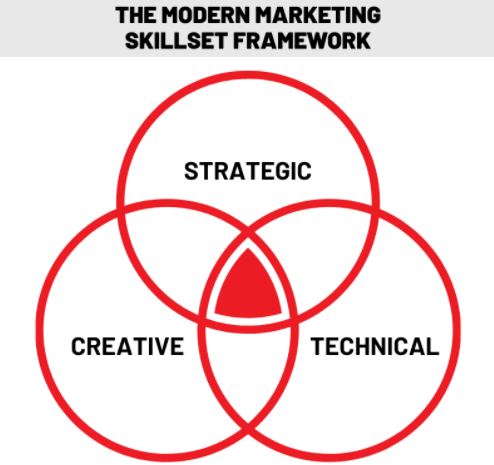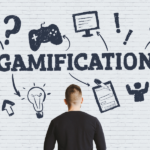The importance of skills: why, which ones and how to gain one
Whether you’re a professional or a graduate, in your job hunt, your skills matter. They tell potential employers what you can do, how you can do it, and even who you are. All skills can generally be divided into two main types: hard skills and soft skills. And you’ll need both in your career. But first, what is the difference between the two?
This article will walk you through these major topics:
Soft vs Hard Skills

Hard skills are teachable abilities or skill sets that are easily measurable. They come from specific knowledge and are often tied to specific tasks or technologies, such as the mastery of a piece of software, the ability to analyse, visualize, and present data, or fluency in a foreign language. Typically, hard skills are obtained through education, books or other training materials (both offline and online), or on the job. These hard skills are often listed in your cover letter and on your resume and are precious elements for an employer or recruiter to recognize your abilities.
Hard skills are often opposed to soft skills, which are the qualities and abilities that speak to how a person will do their job and relate to others in their workplace, such as strong work ethic, dependability, empathy, creativity, and communication with co-workers and clients. Soft skills are subjective and are not easy to measure. They can be considered as part of your personality, but you can also learn them. Compared to hard skills, you’re less likely to have gained your soft skills through education or at work. Though both experiences can help you build your soft skills, you’re not likely to see a class in “strong work ethic” or “being a good listener”.
In a nutshell, hard skills are teachable and measurable abilities, while soft skills are the traits that make you a good employee. They are both very important in a career path as companies recruit not only based on working experience or education, but mainly on skill. In fact, business leaders think they need to train and upgrade their teams’ abilities. Improving your employees’ skills means focusing on improving the employees’ performance, and therefore the company’s performance. Therefore, organizations are starting to focus on development of their people’s meta-skills.
Meta skills
A meta skill is a master skill that magnifies and activates other skills. They are broad capabilities that help you to develop other skills and can be applied across a wide variety of domains. In other words, a metaskill can be considered a meeting point between hard and soft skills.
Here is an example. Learning a new language or how to code constitutes a skill. The metaskill, in this case, is your ability to learn new languages. For this reason, skills are temporary because they are learned and developed, and therefore can be forgotten and refreshed. By contrast, a meta skill is a permanent part of you that enables you to achieve things. Skills can become outdated if not practised – you can lose a language fluency if you don’t speak that language for a long time. While, metaskills never get old or forgotten – you will always be capable of learning a new language once you gain that meta-skill.
As the workplace evolves continuously, candidates with meta skills are becoming increasingly valuable. Employers seek applicants with a blend of soft and hard skills as they have the flexibility that enables them to keep up with change. And when in front of resumé, employers look for proof that a candidate has the right hard and soft skills.
For this reason, adding skills to in your resumé is important – together with certification about hard skills and score. For this purpose, certifications such as GAMS’ Profile Scorecard (PSC) might be very convenient. GAMS’ scorecard is a unified certification to show talents’ hard and meta skills in MadTech tools. Unlike other certifications that validate only a course completion, the Profile Scorecard certifies what a student can do for real. Besides the hard skills validation, the Profile Scorecard can aggregate all certifications of other platforms (like Facebook Blueprint, Google Analytics Certification etc) into one place. The PSC is very useful to HR people for screening purposes such as validating candidates’ attitude toward MadTech tools.
Do you want to show your meta skills to recruiters?
The most requested MadTech skills today

It’s still about the people. For all businesses, understanding people remains the strategic cornerstone. Since the advent of human-centric marketing, listening to your customers and their needs has become the most important skill marketers are required nowadays. Customer behaviour, principles of psychology, empathy, active listening, research methods are some of the required skills and knowledge to understand how people make choices, how they think about brands and how they are influenced.
93% of B2B marketers use content marketing, but only 42% say they’re effective with their content efforts. How people digest content is changing. And marketers should be able to effectively communicate their ideas and offerings, and be comfortable with creating content strategies that fulfil specific marketing objectives.
55% of B2B companies use marketing automation as part of their strategy. Marketing automation consists in the use of software platforms and technologies to effectively market on multiple channels online and automate repetitive tasks. According to the Deloitte’s Connecting Small Businesses in the U.S. report, 80% of small businesses aren’t taking full advantage of digital tools such as data analytics and more sophisticated online tools. By automating marketing activities, you can free up more time for strategic and creative tasks that directly impact your brand.
64% of marketing executives think that data-driven marketing is crucial to success in a hyper-competitive global economy. Read and analyse data to make smart decisions. Making sense of MadTech starts with data and insights, and only the first one is readily available today. A big majority of marketers and advertising professionals today reports that finding actionable insights in the data is a pain point. Therefore, tracking and measuring brand effectiveness and advertising effectiveness are now highly required skills to be able to make smart decisions about future marketing actions.
Social media has completely changed the way people interact with brands. Therefore, marketers have changed the way they communicate with their target audience. Social media is today used to accomplish a number of goals: from branding to lead generation to revenue growth. Thus, understand of social media and their management is a critical skill that all marketing professionals are required today. Platforms like Twitter, Facebook and LinkedIn allow marketers to network, interact with customers and share valuable content. As a result, SEO has become ingrained in nearly every digital marketing initiative to target relevant keywords and measure your link-building efforts. All marketers should have a fundamental understanding of SEO best practices to increase visibility within Google search results.
How to gain a new skill
Most people believe the system is not working. Research shows that only half the number of graduates feel prepared for a job in their field, and 61% of managers feel graduate students are not ready for the workforce. At GAMS, we believe the best way to acquire such tech skills is by actively using the tools MadTech jobs require. For this reason, GAMS provides students the opportunity to learn and familiarize with these tools through our platform and challenges. Gaining hard skills by practising with future job-roles tools is the best way for students to find their ideal career path and get ready to succeed in their future job hunt. As Dario Bussolin, HR Innovation Manager at BeInValYou states:
When talking about roles that require technical skills and the use of platforms and tools, I would not recommend anything other than studying and practising with the tools of the sector, trying to get certified and taking advantage of the university period to get to know and use a few more tools and put this expertise on your resumé.
I would recommend making sure you are prepared to use these tools.






